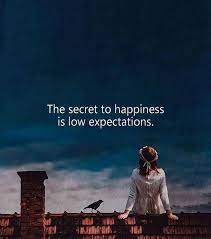Mehboob Makhdoomi
Right at its outset, the possible ban on the Facebook and WhatsApp in Kashmir valley, as is being reported by the media these days, will not only prove the government failure, but it can boomerang. I don’t say this only from the perspective of a netizen who won’t like the decision if implemented But even from the strategic point of view of the authorities, such a measure is a plain non-starter.
To begin with, the premise of such an understanding that the protests have their genesis in social media is absolutely flawed. Most of the people’s revolutions in this world history have taken place, in absence of internet. In 1989 & the subsequent 90’s, we hardly had one landline in an area, mostly in police stations. Could the absence of communication stop people from coming out on the streets? The answer is the resounding NO. Now, this is not to say that information on the social media doesn’t transmit faster than other means, as some may argue that it makes it even worse. Indeed, it catalyzes the news spread. However, it tells people what’s happening on the ground few hours before the traditional media would have anyways told them. If the authorities want people to be in complete oblivion as to what’s happening out there, then by that logic even newspapers and electronic media should be banned. Is that even possible in the current times? So, it’s clear that they are going down the wrong path. There are no rumors which can work in Kashmir. No news is considered to be authentic until some major media house does not report it. It would be too simplistic to say that spread of false information causes mayhem. Of course, there are misleading posts at times but it has no credibility.
Coming to the Pakistan factor, Rajnath Singh issued a statement some time ago that Islamabad is using Facebook and WhatsApp to ‘instigate’ the youth of Kashmir to pelt stones on Indian security forces. Now with all due respect to the Indian Home Minister, I take strong exception to it. I know the ground situation and I can say this with a fair amount of confidence that we are not a flock of dumb cattle. A young man in Kashmir is no less educated than his/her counterpart in Indian cities. And if commonality in religion would be the reason of such a bonhomie, then Indian Muslim is a much softer target. They share more cultural and linguistic similarities with Pakistan apart from religion. More importantly, Justice Sachar committee report conspicuously shows their economic & social status, which is worse than Dalits. Given the Gujarat, Babri & fall out of beef ban like that of Akhlak’s case, they also have their misgivings. Why don’t then so called Pakistani WhatsApp groups along with financiers who are said to be paying stone-pelters, succeed in whipping up passions in Indian Muslims? Mr. Singh himself admits in the same statement that Pakistan-based groups are not only trying to destabilize Kashmir but entire India. How then can he explain the discrepancy of response, if the theory actually held water?
His assertion that Pakistani groups message people in Kashmir at the time of any encounter to come out and save Kashmiri militants doesn’t fit in any logical mind. Does this mean that a group across the border has unhindered contact with the masses of Kashmir, be that in far-flung villages or towns? Secondly, why on earth would these commoners leave their work and run to die just because the sender of the message has a number beginning with +92? Why wouldn’t militants holed up inside the encounter site themselves message their friends and family? Why do calls have to be routed through Pakistan, as per this theory? Do their friends respond less to their direct call and come to be killed & pelleted only when the sender is the western neighbor? What kind of logic is this? Well, to bring in Pakistan factor actually serves the current dispensation at the center in many ways. They don’t want to admit that the people of Kashmir are against them, that too on their own, without enemy’s provocation. This helps them stay in denial and keep the Indian population in such a mode too. This also helps them portray Pakistan as a state which is capable of sending entire Kashmir on the roads with a Whats app message, and that such a Pakistan can only be dealt with their overly masculine government. Even Americans couldn’t do that in tribal Afghanistan. With all the government, security, and financial institutions under India, Pakistan really needs to be a super-power to fail the Indian government in Kashmir by, I repeat, a WhatsApp message.
Coming back to banning social media, the only fall-out of such a step would be that Kashmiris & the world would come to know about the developments a few hours later. The fact is that it will recoil in two ways. One, it will put Delhi in a bad light across the international spectrum that social media had to be curtailed to muzzle voices of Kashmiris. The cause of Kashmir will touch new heroism. Two, those who vent out their feelings and consider social media as catharsis, will look for other violent means. Facebook facilitates reactions & commentary of people who usually don’t come out onto the streets or live outside Kashmir. Thousands have already moved to Twitter and others say the ban is not feasible given the fact that proxy servers can easily be used to bypass the block. In case, the digital embargo seals all the loopholes, it will directly affect the business & employment in the valley. The telecom companies (ISPs) will see steep slopes in their sales charts and can’t afford to hire more people. This is because most of the subscribers continuously refill their credit so as to stay connected with social media. The knowledge sharing apart from the news on social media will take a toll on the education of our youth in the long run. To me, the sole objective of such a knee-jerk reaction would be to actually stop human rights violations being directly reported to the world, by the people, to the embarrassment of the state. I hope they don’t do it now and even in the future. Till how long will the symptomatic treatment work? Kashmir needs a cure, not treatment. Kashmir needs conflict-resolution, not conflict-management.




